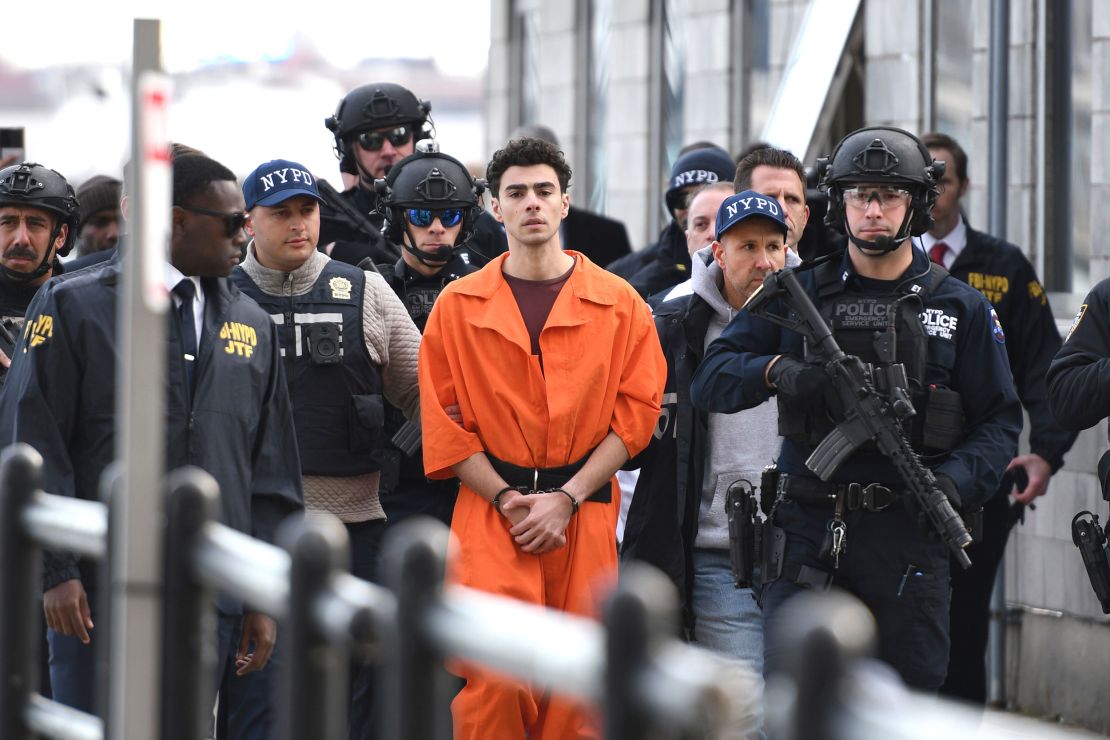
Internet users who express sympathy or support for the actions of alleged CEO killer Luigi Mangione have been designated “dangerous extremists” by the NYPD’s Intelligence & Counterterrorism Bureau.
According to the NYPD, internet users who express anything other than condemnation of Luigi Mangione must be tracked as “potential terrorists.”
That’s according to yet another NYPD document the mainstream media refuses to publish in full. In the holiday spirit of generosity, we’ve included a copy below.

BYPASS THE CENSORS
Sign up to get unfiltered news delivered straight to your inbox.
You can unsubscribe any time. By subscribing you agree to our Terms of Use
Latest Video
Days after the murder, the NYPD circulated an intelligence report focusing not just on alleged killer Luigi Mangione but even ordinary people expressing sympathy for him online. Warning of “a wide range of extremists” that “may view Mangione as a martyr,” the report’s title singles out “disdain for corporate greed” as a source of radicalization.
The report, issued by the NYPD’s Intelligence & Counterterrorism Bureau on December 9, was quickly distributed to law enforcement and counterterrorism agencies nationwide. It was also leaked to select major media outlets, which chose not to make the full document available to the public—though they eagerly quoted parts of it.
The media’s coverage tended to highlight the report’s focus on Mangione, but downplayed its attention to his many supporters. This is the danger of selective disclosure: important details are often left out. By withholding key information and deciding what the public should see, the media takes control over the narrative.
Here’s a copy of the document so you can decide for yourself what you think.

Titled “Writings of Alleged Perpetrator of UnitedHealthcare CEO Shooting Reveal Grievances Against Health Insurance Company, Disdain for Corporate Greed,” the intelligence report reads:
Based on a review of the hand-written claim of responsibility and social media presence of Luigi Mangione, the suspect in the UnitedHealthcare (UHC) CEO shooting, the NYPD Intelligence & Counterterrorism Bureau (ICB) assesses that the alleged perpetrator was likely driven to violence on the basis of grievances against what he perceives as a “parasitic” health insurance company and industry as a whole, as well as broader objections to corporate greed and a concern for modern society. He appeared to view the targeted killing of the company’s highest-ranking representative as a symbolic takedown and a direct challenge to its alleged corruption and “power games,” asserting in his note he is the “first to face it with such brutal honesty.” Mangione may have found inspiration in Ted Kaczynski — the violent, anti-technology extremist known as the Unabomber — echoing in his note and reflecting in his targeting a similar mindset of the need for unilateral action to bring attention to abusive corporate actions. Based on observed initial online reactions to the shooting, including celebrations of the killing of a health insurance executive and encouragement of targeting leaders across industries, there is a risk that a wide range of extremists may view Mangione as a martyr and an example to follow.
Within the three-page handwritten claim of responsibility on his person, Mangione wrote, “Frankly these parasites simply had it coming.” presumably referring to the UHC CEO and/or similar executives. He lamented that the US has the “most expensive healthcare system in the world” yet “ranks #42 in life expectancy,” noting that the profits of major corporations continue to rise while “our life expectancy” does not. He declared that these “mafiosa have gotten too powerful” and “continue to abuse our country for immense profit.” He stated that, while many have “illuminated” this “corruption and greed decades ago,” the issues persist. In a statement signifying that he likely views himself as a hero of sorts who has finally decided to act upon such injustices, he noted, “Evidently I am the first to face it with such brutal honesty.”
Ken Klippenstein reports: The idea that angry social media posts amount to the beginnings of a violent insurgency against corporate executives is nonsense. Security experts have said as much, albeit gingerly. Private security intelligence firm Dragonfly assessed in a recent report that “we strongly doubt that further similar attacks are imminent.”
Here’s what Dragonfly, whose clients include the large corporations nervous about copycat attacks, concluded:
“We assess that violent attacks on business leaders globally will almost certainly remain extremely rare in coming years…While left- and right-wing groups have praised the murder, almost all anti-corporate activists seem intent on nonviolent forms of protest, such as staging demonstrations or verbally confronting executives.”
If you’re wondering why this sounds so different from the hysteria that’s played out in the media, intelligence reports like the NYPD one we published above are a big part of the reason why. Not only do these reports stoke fear and inflate threats, but the furtive way in which they’re circulated shields them from public scrutiny.
The deal the media makes with their law enforcement sources not to publish documents in full results in big, splashy headlines and pull quotes focusing on the most sensational passages but devoid of any context.
The victims of these distorted narratives aren’t just ordinary people, but corporations as well, many of which enjoy privileged access (just like the media) to these government intelligence reports.
The NYPD’s intelligence bureau is just one node in a web of around 70 state-level “fusion centers” surging these kind of threat reports to companies. Presumably the companies just think they’re being responsible by signing up for the reports.
In reality they’re being subtly indoctrinated into the national security state’s way of seeing things. When this apparatus of fusion centers emerged in the wake of 9/11, the warnings pertained to al Qaeda.
But as the global war on terror draws down, the supposed bad guy is increasingly the American people, on both the “far-right” and “far-left” (who decides what counts as “far”?), from MAGA to anti-corporate “extremists” online.
